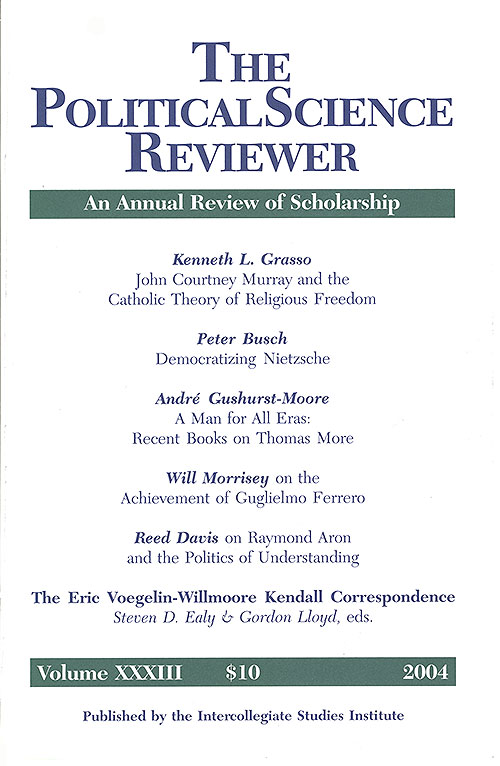Abstract
The 1930s will long be remembered as one of the ugliest decades of modern French history. Diplomatic humiliation abroad combined with unrestrained partisanship at home to plunge France into an era of almost unparalleled political turmoil. During this unhappy period, H. Stuart Hughes has reported, "the customary warfare among ideological groups mounted to an unprecedented shrillness as rival intellectual clans threatened to devour each other whole." Struggling to moderate these quarrels, "the honest and rigorous social thinkers began to realize that a new kind of discourse was necessary—a discourse which would give a surer grasp of reality and translate more easily into the vocabularies in use outside France." Although the call for a new grammar of politics reverberated through an intensely creative generation of French intellectuals, few responded to the challenge as vigorously or as brilliantly as Raymond Aron.
